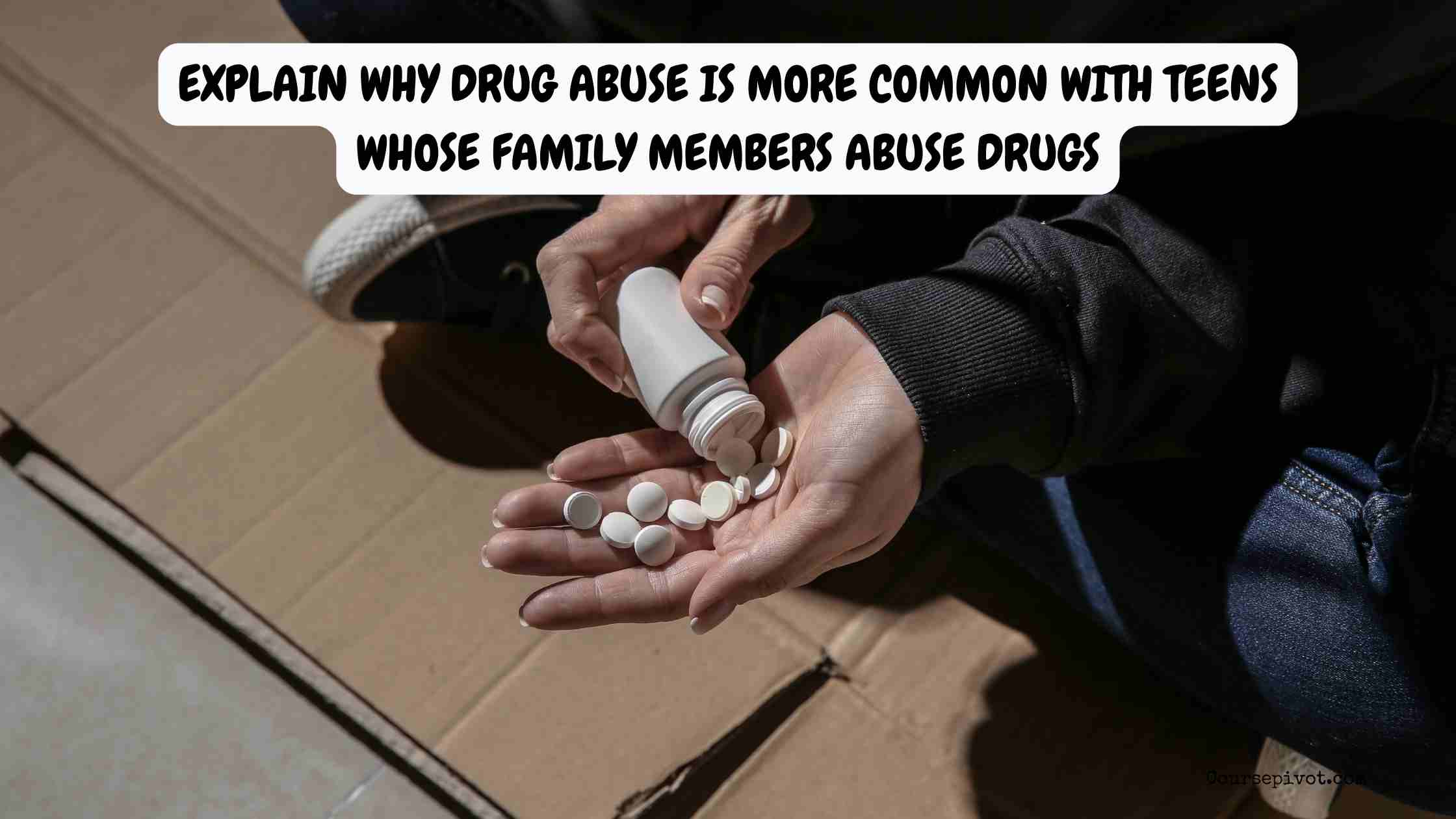
Why Drug Abuse Is More Common With Teens Whose Family Members Abuse Drugs
Drug abuse among teens is a heartbreaking issue, especially when it runs in families. I’ve seen friends struggle with this, wondering why addiction seems to follow them. Understanding why drug abuse is more common with teens whose family members abuse drugs sheds light on a complex problem. In this article, I’ll explore five key reasons behind this pattern, drawn from my own observations and research. These insights can help us support at-risk youth. Let’s dive into why family drug abuse impacts teens so deeply.
Table of Contents
Have you ever noticed how some teens seem trapped in a cycle of addiction? It’s not just chance—family plays a big role. Ready to uncover five reasons why drug abuse hits these teens harder?
Addiction is a tough topic. I’ve felt the weight of seeing loved ones caught in its grip. Let’s explore why drug abuse is more common in teens with family histories.
1. Genetic Predisposition
Genes can make some teens more vulnerable to addiction. This is a major reason why drug abuse is more common with teens whose family members abuse drugs. I’ve read about how DNA influences behavior.
- Inherited traits. Addiction risk can pass from parent to child.
- Brain chemistry. Genes affect how drugs impact reward systems.
- Higher sensitivity. Some teens feel stronger urges to use.
Why do genes matter? They set the stage for addiction risk. Teens with family histories face a steeper climb.
2. Normalized Behavior
When family members use drugs, it can seem normal to teens. This is a key reason why drug abuse is more common in these households. I’ve seen kids mimic what they grow up around.
- Everyday exposure. Seeing parents use drugs lowers stigma.
- Role models. Teens may copy family coping habits.
- Less resistance. Drug use feels familiar, not forbidden.
Why does normalization happen? Familiarity breeds acceptance. Teens view drugs as a part of life.
3. Environmental Stress
Chaotic home environments fuel drug abuse. This is a vital reason why teens with family drug abuse are more prone to it. I’ve witnessed how stress pushes kids toward escape.
- Unstable homes. Addiction creates conflict or neglect.
- Emotional toll. Teens feel anxious or unloved.
- Seeking relief. Drugs become a way to cope.
Why does stress drive drug use? It overwhelms teens’ coping skills. Drugs offer a false sense of calm.
Read our blog on How Do Teen Influencers Describe Their Experiences?
4. Access to Drugs
Teens in these families often have easier access to substances. This is a clear reason why drug abuse is more common among them. I’ve heard stories of kids finding drugs at home.
- Available stash. Parents’ drugs are within reach.
- No barriers. Lack of supervision makes access simple.
- Peer sharing. Family drugs can spread to friends.
Why is access a problem? Proximity removes hurdles. Teens experiment when drugs are handy.
5. Lack of Positive Role Models
Without sober family guidance, teens lack healthy examples. This is a critical reason why drug abuse is more common in these teens. I’ve seen kids drift without strong mentors.
- Absent parents. Addiction can make adults unreliable.
- Poor coping skills. Teens miss learning healthy habits.
- Seeking belonging. Drugs fill the void of support.
Why do role models matter? They shape behavior and choices. Without them, teens turn to risky paths.
Read our blog on Five Possible Reasons for Taking Supplements or Drugs as Part of a Workout Regimen
What’s Next for You
Understanding why drug abuse is more common with teens whose family members abuse drugs is a call to action. I’ve been moved by the struggles of young people caught in this cycle. These five reasons—genetics, normalization, stress, access, and lack of role models—show why these teens are vulnerable. Breaking this pattern takes effort, but it’s possible with support. Will you ignore this issue, or help teens break free?
Here’s how to make a difference:
- Educate yourself. Learn about addiction’s family impact.
- Support programs. Back local youth mentoring or counseling.
- Be a role model. Offer guidance to teens in need.
This issue hits close to home. Why drug abuse is more common in these teens is a challenge we can face together. Start today to support a brighter future for them.
Cite this article
You can copy and paste your preferred citation format below.
Martin, L. & Arquette, E.. (2025, May 30). Why Drug Abuse Is More Common With Teens Whose Family Members Abuse Drugs. Coursepivot.com. https://coursepivot.com/blog/explain-why-drug-abuse-is-more-common-with-teens-whose-family-members-abuse-drugs/



